Birth of a Nation: Imagining Black Resistance
I’m taking my students to see Birth of a Nation and I’m excited to use this film as a tool in my curriculum. At a time when #BlackLivesMatter has become a unifying rallying cry, I’m eager to use the film to show an example of Black resistance, something most of our students rarely, if ever, get to see. And our inability to see Black resistance—to even imagine what living free from White supremacy looks like—is part of the reason that we have such difficult creating realities free from the reach of racism.
I was an African American Studies major in college and yet, when I first watched Birth of a Nation, it was the most powerful depiction of Black resistance I’d ever seen on the screen. And being able to imagine and envision Black resistance matters.
“Talking about slavery is uncomfortable. But until we fully study, understand and analyze slavery [and resistance] we will never have access to all the answers we need for healing from White supremacy today. Sadly, many of us know little to nothing about how many of our ancestors resisted slavery and created freedom on their own terms.
This is mainly true because we’ve turned our children’s education over to our historical oppressor. Which means that daily, Black kids (descendants of the enslaved) receive an education that was designed to meet the emotional and educational needs of White children (descendants of slave owners). If you don’t think that screws up our community’s ability to properly assess the impact of White supremacy on our condition, then you haven’t been watching us fail at healing from it very long.”
Black Education (and Resistance) Matters
When compared to their White counterparts, by most measures and with few exceptions, the vast majority of Black children in American schools are performing at dismal rates academically. According to the National Center for Education Statistics, only 68% of Black students graduate on time. Black students make up the fastest growing group of children filling jail cells. They are suspended and expelled three times as often as White children, are subjected to harsher scrutiny and suffer from lower expectations from both teachers and authority figures. Black girls and Black boys are the primary passengers on the trains driving up and down the school to prison pipeline and those disparities start as early as preschool.
As noted by educator, consultant and author Gary Howard, “It is no mere coincidence that the children of certain racial, cultural, linguistic and economic groups—those who have been marginalized by the force of Western White domination—are the same students who are now failing or underachieving at disproportionate rates in our nation’s schools.”
Significantly, even those Black children who do successfully navigate the education system, make it through college and get jobs, rarely have the capacity to apply their education to meeting the vast needs in our community. If someone is a Black college graduate but the only thing he or she can do with that education is interview with and work for White people in order to sustain themselves, then arguably (from a community-health perspective) their education was a failure. If the masses of our best and brightest students can’t use their education to fix the ails in our community, then we’re on a fast track to being a permanent underclass.
Black children (regardless of social class) also battle with what Dr. Joy DeGruy calls racist socialization: the adoption of a white supremacist value system which has its roots in race-based slavery. At this value system’s foundation is the belief that white, and all things associated with whiteness (including intelligence and beauty), are superior; and that black and all things associated with blackness, are inferior.
If ever there were a time when Black children needed to have a culturally competent understanding of the mess they’ve inherited, it is now. I’m eager to use the film, Birth of a Nation, to provide just that. (Though some say we shouldn’t need a movie to teach our kids about their history because our kids should just read a book, the reality is that’s not happening. Multi-media art forms appeal to students who grew up in the era of smart phone technology; we can fight that reality or embrace it and use the tools we have to meet them where they are at.)
Black Children Need Black Education Materials
Research shows that when Black children receive an education tailored to meet their specific learning needs, they will perform better in school, they are more likely to go to college and they are more likely to be empowered to use their education to address the issues plaguing their community.
A recent study out of Harvard and University of Pittsburgh found that when Black parents and schools empower Black children with positive racial socialization, they perform better academically. In fact, researchers found that “racial pride” was the single most important factor in protecting Black students against racial discrimination and it was found to have a “direct impact on the students’ grades, future goals, and cognitive engagement.”
Black children need to see themselves in film and in curriculum; they need to see heroic portrayals of themselves that evoke a sense of pride and which will build up their cultural self-esteem. As someone who has met high school students who thought MLK played a role in freeing the slaves, I cannot tell you how desperately our kids need educational materials designed with their needs in mind.
That’s one of the main reasons I’ve been so excited about taking my students to see the Birth of a Nation (screening it with over 500 kids next week!) and using this film in the classroom. I know many of the people involved with making this film and I’m looking forward to seeing a big screen portrayal of Nat Turner, one of the many ancestors our children should know as a hero. Some of the film’s central themes (slavery, oppression, religion, faith, love, family and resistance) resonate perfectly with the current times and seeing these themes centered on Blackness is a privilege that I never had growing up.
Resource Materials
For those looking for additional information on Nat Turner, check out Rise Up: the Legacy of Nat Turner, a documentary airing on Nat Geo tonight. In the next week or so I will have information on a Teaching Nat Turner curriculum and screening guide put together by scholars who wanted to empower educators and parents to be able to have dynamic conversations with school aged children about slavery, racism and the impact of both on our communities today. For folks looking for educational music materials, there’s the Inspired by Birth of a Nation Album, where artists who our children know and love use their voice to speak out on racism, and the realities of society today. Finally, there’s The Birth of a Nation: Nat Turner and the Making of a Movement, a powerful book (and the official tie-in to the film) which surveys the history and legacy of Nat Turner while exploring Turner’s relevance to contemporary dialogues on race relations (and I am one of the contributing authors!!).
In light of the countless names that now have hashtags, the various forms of protest against racial injustice and other ways that Black people have begun to engage with resistance—I’m eager to see this film again. I’m excited to dialogue about it with my students and family members and dive into community wide discussions about how we can apply its messages to our reality today.
100 years ago D. W. Griffith’s original Birth of a Nation was the first film ever made in Hollywood. It re-energized organized hate groups like the Ku Klux Klan who then enjoyed decades of committing racial terror against Black people. To this day, it remains one of the most racist films ever made in history. It literally birthed a nation of racist imagery that has negatively impacted Black people ever since.
This weekend, the “Birth of a Nation” is being reclaimed and centers on Black resistance in a way that D.W. Griffith could have never imagined. That, in and of itself is an act of resistance that I fully support.
***********************
Looking for more thoughts from an Afro State of Mind? Check out my book Afro State of Mind: Memories of a Nappy Headed Black Girl now available here for e-book download! And if you want to stay connected follow me on Twitter, or Instagram “like” Afro State of Mind on Facebook or catch up on my latest Youtube videos! Opinions are those of AfroStateOfMind(tm) only and do not represent those of any other institution.
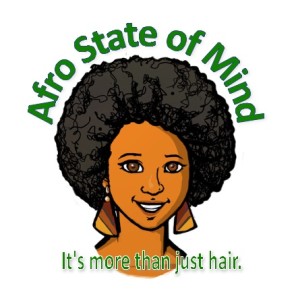
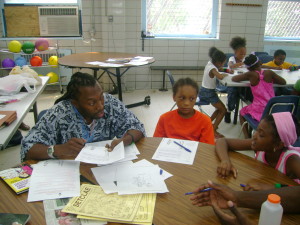


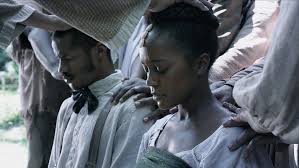

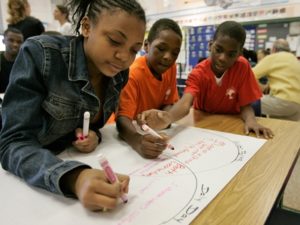
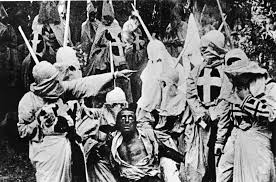


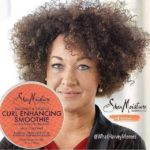

Speak Your Mind